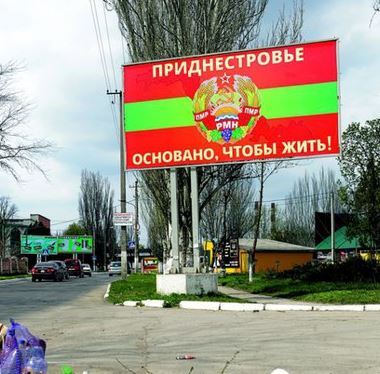Last November I was buying a bottle of wine in the lovely country of Transnistria. I had crossed the border intent spending my hard earned Transnistrian rubles and sampling Transnistrian food. What? you’ve never heard of Transnistria? That’s because it’s only recognized by two other countries in the world, Abkhazia and South Ossetia. You’ve probably never heard of them either. That’s because they’re really not countries by official definition; Often referred to as de facto countries, they are places that have demanded autonomy and world wide recognition, but have not gotten it yet. Even spell check doesn’t recognize them as I write this.
If you ask someone how many countries are in the world, you’ll get a lot of different answers. 193 is the number of countries in the United Nations, but it doesn’t take into account Vatican City, Taiwan or Kosovo. Is Palestine a country? What about Scotland, Ireland, Northern Cyprus, or Israel? The more you travel around the world, the more confusing it becomes. There’s no better way of super charging your knowledge of politics than visiting these little pockets of “freedom”.
For example, let’s say you want to visit Somalia. First, you don’t really want to do that. Somali is considered by most reports to be the most dangerous country in the world. Besides the fact that there really isn’t even a government in place, there’s piracy, kidnapping and lots of unpleasant activities not usually found on most tourist brochures. However, Somaliland is an independent state with a British majority population that is nothing like the country it is attached to. It’s not the safest place in the world, granted, but it you’re an experienced traveler and you collect odd destinations in your passport like I do, you might be pleasantly surprised.
I was just visiting Cyprus last month and crossed from the northern side of the country (which considers itself it’s own country or part of Turkey) to the south. Cyprus is a beautiful island and there’s lots to see and do. What’s interesting though, is to go between the two regions that are officially considered to be one state and see how radically different than they are from each other. As soon as you cross the “border”, the language changes, the money changes, and the food changes. These two different ethnic groups have managed to coexist since the Turkish population seized the northern part of the island in 1983 and the UN set up a border to ease tensions between the two areas. In other words, these people have been in a state of limbo for 30 years. No one is really mad anymore it seems and travel is safe. For traveler’s, it’s happy hour on Cyprus. Buy one country, get the second one free.
Israel has a lot to see in a small country. But, wait! Is it a country? Not according to some of it’s Arab neighbors. If you ask the Israelis, those pesky Palestinians just keep wanting more and more of their homeland. It seems to be a monopoly game that no one wins. Have you ever wanted to visit “the little town of Bethlehem”? You might be surprised that it’s not so little anymore, looks nothing like the Christmas cards you sent your friends, and you’ll have to pass a few Palestinian checkpoints before you can visit Jesus’ birthplace. East Jerusalem, Jericho and the Dead Sea are all on the standard travel itinerary for visitors and controlled by the Palestinian Liberation Organization. Is it worth going? By all means. Your chances of running into any kind of political conflict are very rare. If you’re waiting for the area to settle down or you’re rattled by an occasional bomb going off, you’re in for a long wait.
Sometimes these border checkpoints can be a little silly if not maddening. When you cross into Guatemala from Belize, look at the map of Guatemala on the Guatemala side. Did you know that Belize doesn’t exist? Sure, they stamp your passport for some inexplicable reason, but they’ve been holding on to the belief that Belize belongs to Guatemala since 1940. I was traveling in Morocco in the Spanish Sahara years ago. About every half hour we’d be stopped by the SADR and they’d have all of the passengers sign some documents, give our occupations, why we were there, blah blah blah…. After the first few stops, we realized that no one was really even looking at the sheets or knew why were were doing it. To keep from being annoyed, I was a brain surgeon at one stop, a rock and roll star at another and whatever creative occupation popped into my head as I was filling out needless paperwork.
Usually these emerging countries are split by language, religion, rights or economics. Look at Yugoslavia for example: A hodgepodge of people who didn’t belong together forced to be with each other like a bad rock and roll band. We’re lucky in the United States to be a fairly homogenous group so it’s unlikely that we’ll have any new countries splitting from America anytime soon. I suppose that if it did happen, we’d have Hollywood, an independent country of movie stars fighting over political office or Cajunland, a French speaking state strategically protected from it’s enemies by swamps and alligators.
It’s a good idea to do your research before you visit an unrecognized country. You should avoid areas with political demonstrations and be careful about how you treat border crossings.You can have a lot of fun visiting these places and collecting a refrigerator magnet, some coins or other interesting souvenirs from your destination because you never really know if these states are going to become permanent or disappear. My bottle of Transnistrian vodka always makes an interesting conversation piece. Who else has one?






Leave a reply
You must be logged in to post a comment.